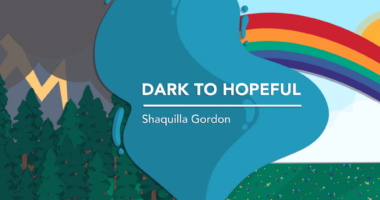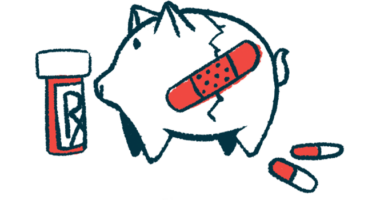I shouldn’t let my PNH diagnosis define me — or should I?
Living with my rare disease has changed who I am in many positive ways

A common phrase I keep seeing when it comes to living with a rare disease is “don’t let the disease define you.” But what if I did let my paroxysmal nocturnal hemoglobinuria (PNH) diagnosis define me? After all, I’m stronger, kinder, more flexible, and a lot tougher after living with my rare disease. I’m proud of that.
Strength has been the most impactful attribute I’ve gained from living with PNH. Before my diagnosis, I took care of my body — I drank water, exercised, and ate healthy (but not perfectly; McDonald’s french fries will forever be my weakness). In return, my body gave me this disease. I was angry about this fate. Facing life-threatening and life-altering medical news can break a person down. That’s what it did to me.
Accepting my rare disease journey required more strength than I thought I had. In the beginning, people would say they admired my strength in dealing with my diagnosis, but I didn’t agree with them; I couldn’t get through each day without crying and being afraid. It became exhausting.
But the mental strength required to view my diagnosis with a game plan instead of a woe-is-me mindset is something I’m proud of, and I now see the strength in myself that others claim they saw all along. I’m proud that I’m defined by how PNH has made me strong.
Kindness was an easy trait to acquire with PNH, especially because of the people I’ve encountered on this journey. Meeting other patients at my infusion center and relating to each other’s struggles with an empathetic, listening ear have taught me kindness.
I’ve also practiced kindness when understanding that phlebotomists don’t mean to hurt you when they poke your veins. And watching my loved ones put their troubles aside to help me with mine has taught me much, as well. I’m proud that I’m defined by how PNH has made me kinder.
I’ve become more flexible because of all the changes of plans I’ve made because of my disease. Since PNH symptoms are unpredictable, it’s hard to look ahead when I’m not sure how I’m going to feel. Sometimes plans are made that I must reschedule at the last minute. I may have an order to the tasks I want to get done for the day, for instance, but things don’t end up playing out that way.
I used to become frustrated when I had to make these changes, but becoming more flexible has taken away that problem. Changing plans is exactly that — a change, not a cancellation. I’m proud that I’m defined by how PNH has given me greater flexibility.
Lastly, putting on a brave, tough face wasn’t one of my strong suits before my disease. Going to doctor appointments, getting blood drawn, and receiving any diagnoses would leave me trembling in fear. I was often scared and anxious about getting hurt and needing medical attention. PNH didn’t give me a choice; I had to face these fears head-on, and it made me a million times tougher.
If I’m told now I need a vaccine, such as for meningitis, which is required with my Soliris (eculizumab) treatment, I simply roll up my sleeve with no anxiety. The old me would have been crying and shaking. This toughness doesn’t mean I like any of the medical attention I receive; it just means the fear factor is gone. I’m proud that I’m defined by how PNH has made me tougher.
My PNH journey has been my most character-testing experience. I’ve proudly let my disease define me because I wouldn’t be the person I am today without it. As a result, I’d like to pose this question to others: What if you let your biggest setback define you? Would that be such a bad thing?
Note: PNH News is strictly a news and information website about the disease. It does not provide medical advice, diagnosis, or treatment. This content is not intended to be a substitute for professional medical advice, diagnosis, or treatment. Always seek the advice of your physician or other qualified health provider with any questions you may have regarding a medical condition. Never disregard professional medical advice or delay in seeking it because of something you have read on this website. The opinions expressed in this column are not those of PNH News or its parent company, Bionews, and are intended to spark discussion about issues pertaining to paroxysmal nocturnal hemoglobinuria.







